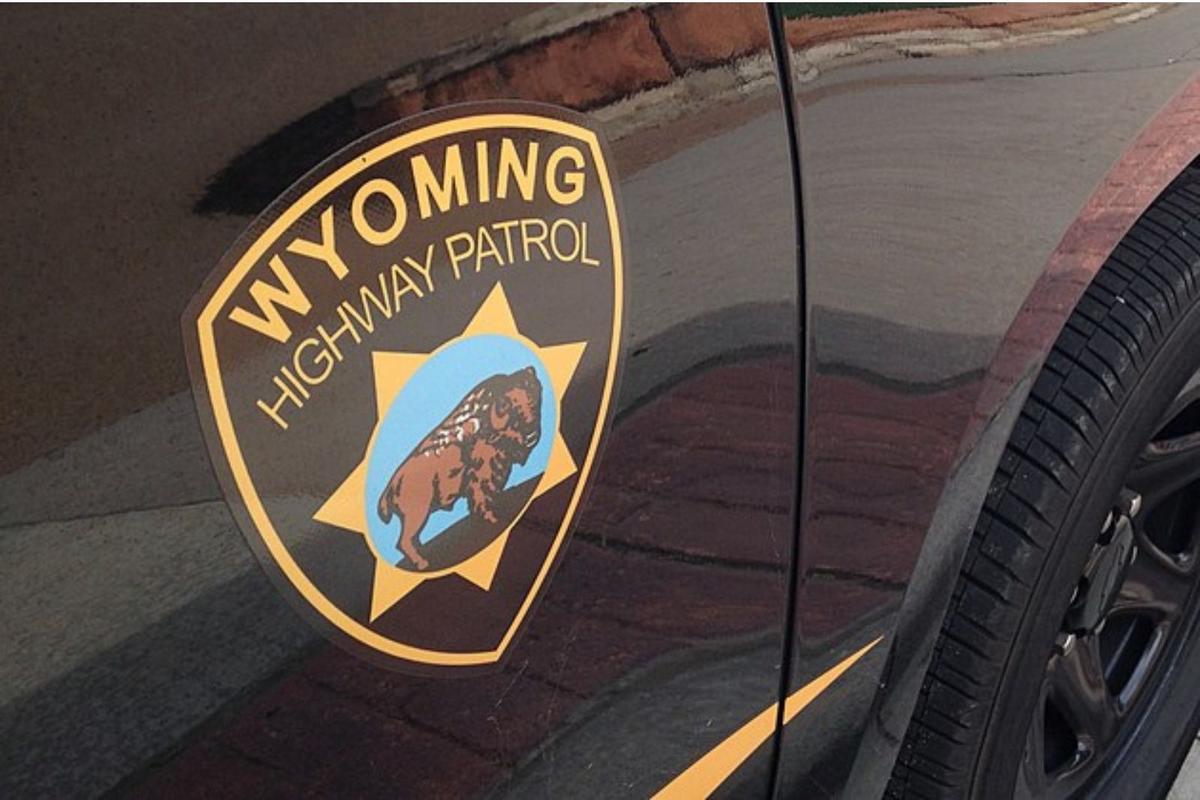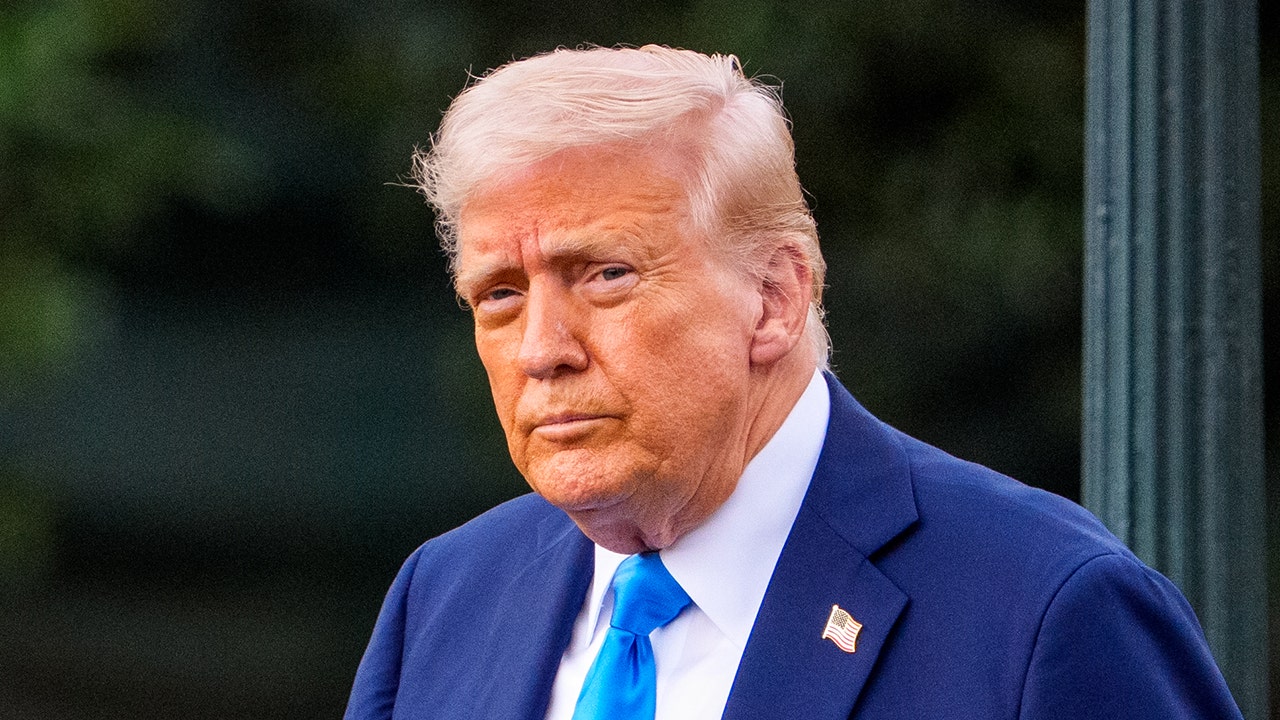Education
What the Debt Ceiling Deal Means for Student Loan Payments

For millions of Americans with federal student loan debt, the payment holiday is about to end.
Legislation to raise the debt ceiling and cut spending includes a provision that would require borrowers to begin repaying their loans again by the end of the summer after a yearslong pause imposed during the coronavirus pandemic.
President Biden had already warned that the pause would end around the same time, but the legislation, if it passes in the coming days, would prevent him from issuing another last-minute extension, as he has already done several times.
The end of the pause would affect millions of Americans who have taken out federal student loans to pay for college. Across the United States, 45 million people owe $1.6 trillion for such loans — more than Americans owe for any kind of consumer debt other than mortgages.
The economic impact of the pandemic has faded since President Donald J. Trump first paused student loan payments in March 2020. Many Americans lost their jobs at the outset of the public health crisis, undercutting their ability to repay their loans on time. The number of jobs in the United States now exceeds prepandemic levels.
Promoting the debt ceiling legislation over the weekend, Speaker Kevin McCarthy said on “Fox News Sunday” that it would end the pause on student loan payments “within 60 days of this being signed.”
In fact, the legislation would follow the same timeline that the Biden administration had previously outlined, ending the pause on payments on Aug. 30 at the latest.
A spokesman for Mr. McCarthy did not respond to an email seeking comment.
Even with the pause ending, some borrowers may still see some relief if the Supreme Court allows Mr. Biden to move forward with a plan to forgive up to $20,000 in debt for some people with outstanding balances.
Mr. Biden’s plan would cancel $10,000 of federal student loan debt for those who make under $125,000 a year. People who received Pell grants for low-income families could qualify for an additional $10,000 in debt cancellation.
But the plan was challenged in court as an illegal use of executive authority, and during oral arguments in February, several justices appeared skeptical of the program. A ruling from the court could come at any time but is expected next month.
White House officials have said repeatedly that they are confident in the legality of the president’s plan. But the debate about the plan, and the broader issue of student loans, has been fierce in Congress.
Republicans have vowed to block the president’s plan if the courts do not. But they have so far failed to make good on that promise, despite repeated attempts.
Last month, House Republicans passed a bill to raise the debt ceiling that would have blocked the student debt cancellation plan and ended the temporary pause on payments. That bill was shelved after negotiations began with the White House on the debt ceiling and spending cuts.
Last week, the House passed a resolution that would use the Congressional Review Act to overturn the president’s debt cancellation plan. But the Senate has not taken up the measure, and Mr. Biden has said he would veto it.
Instead, the compromise debt ceiling legislation now under consideration by lawmakers only requires ending the pause on payments — a move that the president had already said he would make. It would not block the debt cancellation plan.
In addition, White House officials said the legislation would not deny the Biden administration the ability to pause student loan payments during a future emergency, as Republicans had sought to do.
A spokesman for the White House said the president was pleased that Republicans had failed to block his debt cancellation plan in the debt ceiling legislation.
“House Republicans weren’t able to take away a single penny of relief for the 40 million eligible borrowers, most of whom make less than $75,000 a year,” the spokesman, Abdullah Hasan, said. “The administration announced back in November that the current student loan payment pause would end this summer — this agreement makes no changes to that plan.”

Education
A Teachers’ Union Is Spending Millions to Elect Its Boss Governor

He failed to qualify for matching state campaign funds and fell short of the threshold to participate in two upcoming debates as he runs for governor of New Jersey. His spokesman works for a consulting firm in Washington, D.C., and he has no paid campaign manager.
But Sean Spiller has something the other five Democrats running for governor don’t: a $35 million blank check from a group with close ties to the labor union he leads, the New Jersey Education Association.
For more than six months, Mr. Spiller’s image has been plastered on billboards, campaign mailers and front-door hangers throughout New Jersey. He has been featured in commercials, digital posts and, more than a year before November’s election, a full-page ad in The New York Times.
The publicity has been paid for by Working New Jersey, a super PAC funded largely with public schoolteachers’ union dues, according to a review of Internal Revenue Service records.
Since July, I.R.S. records show that a political arm of the teachers’ union has sent at least $17.25 million to Working New Jersey. The super PAC, in turn, has reported that it was prepared to spend as much as $35 million on behalf of Mr. Spiller, a science teacher by trade who draws a roughly $370,000 salary as president of the N.J.E.A.
Working New Jersey has already spent $8.3 million on television, digital and streaming ads, according to AdImpact, which tracks political spending.
The union’s unconventional strategy appears to have helped boost Mr. Spiller’s standing in the hypercompetitive race.
Early surveys indicated that Mr. Spiller, a little-known former mayor of Montclair, N.J., had limited political support. But recent polls have suggested that he is now tied for second place. Representative Mikie Sherrill has consistently been at the front of the pack, with Mr. Spiller and the mayor of Newark, Ras J. Baraka, and the mayor of Jersey City, Steve Fulop, close behind her.
But nothing about the race to replace the state’s term-limited governor, Philip D. Murphy, is certain with such a large and accomplished field of candidates. Fundamental changes to the rules that govern primaries have made it the state’s most volatile contest in recent history.
A poll conducted in January by Emerson College found that 56 percent of Democrats remain undecided.
The N.J.E.A. has long been among the state’s most powerful unions, with nearly 200,000 members and a willingness to take on political foes. Its involvement with the Working New Jersey PAC is among its most overt efforts to sway voters in a state election.
Mr. Spiller, who emigrated from Jamaica as a child, has said that as governor he would focus on expanding affordable housing, strengthening schools and defending New Jersey against President Trump’s policies.
Most of the Democratic and Republican candidates for governor are benefiting from spending by outside interest groups. But Mr. Spiller is the only candidate to have also raised so little on his own to directly fund his campaign. As of the most recent state filing, Mr. Spiller’s campaign had raised $183,000 in a race where every other prominent candidate collected more than $1 million — and several have taken in close to $3 million each.
In an interview, Mr. Spiller, 49, said there were metrics beyond fund-raising and the size of a campaign staff that were more indicative of support for his candidacy. He noted that he had submitted more signatures to get on the ballot than all but one other Democratic candidate.
He refused to directly address questions about whether he considered it a conflict of interest that he was benefiting so significantly from dues contributed by members of a union that employs him as president. He noted that other candidates had turned to real estate developers and Wall Street bankers for contributions, and that by sidestepping that funding stream he had avoided being beholden to their interests, if elected.
“Our campaign is based on fighting for working class folks,” he said.
He also dismissed the significance of falling short of the $580,000 campaign fund-raising threshold that would have qualified him for 2-to-1 matching funds for the June 10 primary. “If I called millionaires and very wealthy folks, I could meet goals,” he said.
By law, super PACs may raise and spend unlimited sums but are barred from explicitly coordinating with candidates’ campaigns. Officials with the N.J.E.A. and Working New Jersey said that Mr. Spiller had not been involved in allocating union funding or in any promotional efforts on his behalf.
“We recognized the need to put guardrails and protections in place to ensure that there was not a conflict of interest,” said Steven Baker, the union’s spokesman. “The candidate does not get to decide what is spent or how it is spent.”
Mr. Baker said Mr. Spiller also had no role in the union’s decision to set aside money for political advocacy or for its political arm to send millions to Working New Jersey.
A spokesman for Working New Jersey, Eddie Vale, said the same thing. “As an independent expenditure campaign, we cannot, and do not, coordinate with or talk to the Spiller campaign in any way,” Mr. Vale said.
To voters, however, the Spiller promotional material piling up in mailboxes may be largely indistinguishable from the types of ads paid for directly by his opponents’ campaigns. Each carries a tiny disclaimer: “not made with the cooperation or prior consent of, or in consultation with or at the request or suggestion of, any candidate, or any person or committee acting on behalf of any candidate.”
Specialists in campaign finance law say that Working New Jersey’s support for Mr. Spiller is part of a growing trend of outsourcing to special interest groups work traditionally done by campaigns.
Daniel Weiner, an election law expert at New York University’s Brennan Center for Justice, noted that Mr. Trump also relied heavily on super PACs for core campaign responsibilities.
“Every election cycle people push the envelope even further,” Mr. Weiner said.
The trend can be traced to the Supreme Court’s Citizens United campaign finance decision in 2010, which freed political action committees run by corporations and unions to spend unlimited sums on behalf of candidates.
“The theory was that these groups would not be interchangeable with candidates’ campaigns,” Mr. Weiner said. “Instead, the way they often work is they’re just sort of the alter ego of the campaign.”
Only New Jersey and Virginia hold governor’s races the year after a presidential election, and their results are likely to offer some of the nation’s earliest insights into voter attitudes toward Mr. Trump ahead of the 2026 midterm elections.
It is perhaps no surprise that New Jersey’s contest is on track to hit campaign spending levels that one top state elections official called “stratospheric.”
That’s true of super PACs, too.
In 2021, super PACs spent a record $13.4 million in support of all primary candidates for New Jersey governor. That record has already been dwarfed by the $35 million in anticipated spending by a single super PAC on behalf of Mr. Spiller.
In the days leading up to the March 24 deadline to qualify for matching funds, Mr. Spiller’s appeals to potential donors took on an urgent tone.
“I need you to donate $20 or more,” one email stated. “I’ll be honest with you,” another read, “we’re not yet where we need to be.”
But his shortage of funds appears to have had no effect on Working New Jersey’s ability to spread his message.
Officials running the super PAC said that they had conducted 13 internal polls to measure Mr. Spiller’s standing in the race and are prepared to continue targeting Democratic primary voters on television, social media, billboards and at their homes.
Last Friday, people affiliated with Working New Jersey hung fliers on doors in Cranford, N.J. — an effort that the officials said was part of a statewide canvassing blitz that had already reached 661,000 homes. At one house, after leaving a door hanger, the representative sent a text message to the registered Democrat in the household with a link to the super PAC’s website: “New Jersey needs fighters like Sean to stand up to the Trump administration’s radical agenda and do something about rising costs.”
Should he lose, Mr. Spiller is likely to face questions about the wisdom of investing teacher dues so heavily in a single political campaign.
“He’s going to have to face his members” and explain spending millions of dollars, said Matthew Frankel of the Sunlight Policy Center, a nonprofit advocacy group critical of N.J.E.A. leadership.
“On that,” Mr. Frankel added, “I think he’s in a world of hurt.”
Mr. Baker, the union spokesman, said that the N.J.E.A.’s endorsement of Mr. Spiller and financial support for his candidacy were based on a conviction that he could “most forcefully and effectively advance” members’ priorities.
Those priorities, he said, are multifaceted and include improving pension allocations, fully funding schools and defending freedom to read initiatives.
“When you look at the national landscape, voters are very aware of what’s at stake in a state like New Jersey,” Mr. Baker said.
Education
Stanford Protesters Charged With Felonies for Pro-Palestinian Occupation

Prosecutors on Thursday filed felony charges against 12 pro-Palestinian protesters — all but one of them a current or former student at Stanford University — for breaking into administration offices in June and causing extensive damage.
The charges were among the most severe levied against participants in last year’s pro-Palestinian demonstrations on college campuses. More than 3,000 people were arrested at college protests and encampments in the spring of 2024, but they generally faced misdemeanor charges or saw their charges dropped.
Jeff Rosen, the district attorney for Santa Clara County, which includes the Stanford campus, charged the 12 protesters with felony vandalism and felony conspiracy to trespass. They face up to three years and eight months in prison, as well as the payment of restitution to reimburse the university for the damage.
Stanford is one of dozens of schools being investigated by the Trump administration for how they have handled pro-Palestinian protests and whether they have done enough to combat antisemitism on campus. The administration has also revoked the visas of several Stanford students and recent graduates, though the reason is unclear. .
Mr. Rosen said that President Trump’s intense focus on Stanford and other universities played no role in the decision to charge the crimes as felonies.
“What the federal administration is doing is what they’re doing. What I’m doing is applying the California Penal Code,” Mr. Rosen said.
Mr. Rosen said he was swayed by the extent of the damage caused by protesters and what he characterized as deep, coordinated planning before the building was taken over.
“Whenever you have multiple people working together to commit a crime, it’s much more dangerous to the public,” he said. That the actions were intended to highlight the group’s opposition to the war in Gaza made no difference, he added.
“Speech is protected by the First Amendment,” he said. “Vandalism is prosecuted under the Penal Code.”
On June 5, police arrested 13 people in connection with breaking into the office of the Stanford president early that morning and barricading themselves inside. They made several demands, including that the university trustees vote on whether to divest from companies that support Israel’s military.
They were cleared out of the building and arrested within a few hours, but not before they had broken windows and furniture, disabled security cameras and splashed fake blood inside the building, Mr. Rosen said.
Mr. Rosen did not file charges against one of the 13 individuals, a student reporter for The Stanford Daily newspaper who was covering the protest, but not participating in it. Journalists and press freedom groups had demanded for months that Mr. Rosen decline to pursue charges against the student, Dilan Gohill, who was held in jail for 15 hours after his arrest, according to his lawyers.
Mr. Rosen said that his office undertook a deliberate, methodical investigation before determining that 12 of those arrested should be charged but that Mr. Gohill should not be. He announced in March there would be no charges for Mr. Gohill.
Mr. Rosen said the 12 protesters attempted to hide their communication, including the deletion from their phones of the Signal messaging app, through which they had exchanged messages shortly before their arrests.
He said his investigators were able to “work around” the protesters’ attempts to conceal their planning and found they had surveilled the building; studied the patterns of local police officers and security guards; and assigned themselves specific tasks, such as who would break the window and who would use a crowbar to pry open the door.
The protesters carried backpacks that were recovered in the barricaded building and contained hammers, chisels, screwdrivers and goggles, according to the Santa Clara District Attorney’s Office.
Tony Brass, a lawyer for one of the protesters, Hunter Taylor-Black, said that he was upset that Mr. Rosen took more than 10 months to file his charges. Ms. Taylor-Black, a 25-year-old Stanford film student, and other protesters had already completed their suspensions from the university and were beginning to put their lives back together, Mr. Brass said.
“The voice of student protest is an important voice in American history — always has been,” Mr. Brass said. “Everyone accepts there will be consequences for actions, and so did the protesters. But there was no need for adding this delay. Let them move on with their lives.”
The other 11 protesters either could not be reached or did not respond to requests for comment.
On the same morning as the protest, red graffiti appeared on the sandstone walls of the university’s main quad that condemned the police, Stanford, Israel and the United States. Phrases included “Pigs Taste Best Dead” and “Death to Israehell.” Mr. Rosen said he declined to file hate crime charges because his office could not prove that the 12 protesters were responsible for those messages.
Dee Mostofi, a spokeswoman for Stanford, said on Thursday that the university respected Mr. Rosen’s charging decisions. The university had separately levied its own sanctions on the protesters who were current students, including suspensions that lasted two quarters, a delay in degree conferrals and community service hours.
Mr. Rosen said he did not want to see the 12 Stanford protesters serve prison time. Instead, he said, he would like them to plead guilty and to join the Santa Clara County Sheriff’s work program, in which they would clean highways or government buildings.
“This is kind of biblical,” he said. “You trashed a building, so your punishment should be cleaning things up.”
Felony charges for pro-Palestinian protests on campus have occurred in at least several instances elsewhere over the past year.
Michigan’s attorney general brought felony charges against seven protesters at the University of Michigan, accusing them of resisting police officers who were breaking up an encampment in May 2024. Those cases are still pending.
At Case Western Reserve University in Cleveland, 11 people were charged with felony vandalism in February, a few months after they were accused of smearing red paint over buildings and a statue, causing $400,000 in damage.
At the University of Rochester in New York, four students were charged with felony criminal mischief after putting up “Wanted” posters with photos of university community members, including some Jewish officials, in November. The university’s president condemned the posters as antisemitic.
The severity of the charges stemmed from the cost of the damage caused by the posters, which were stuck to chalkboards and walls with “Super Glue or a similarly strong and durable adhesive,” according to court documents.
The charges are still pending.
Safa Robinson, a lawyer in Rochester who represents one of the students, said it was not unusual to see criminal mischief charged as a felony, since by law the seriousness is dictated by the cost of damage done. What is unusual, she said, is to see such a charge brought against student protesters.
“In a college environment, a lot of times posters are plastered all over the wall — frats, sororities, bake sales, elections, all that kind of stuff,” Ms. Robinson said in an interview. “I think that because these posters touched on a sensitive topic or had a certain type of view, that they’re being treated in this kind of way.”
Education
Trump Is Threatening School Funding. Here’s What Families Should Know.

It is unclear how the federal government might respond.
Will mass federal layoffs affect classrooms?
The Education Department’s work force is about half the size it was on Jan. 19. Mass layoffs gutted units that focus on education research, data collection and civil rights investigations. The entire investigative staffs of several regional branches of the Office for Civil Rights were eliminated, including in Boston, Cleveland and Dallas.
Thousands of pending cases, including hundreds in the New York region, are in limbo. Most involve students with disabilities, including investigations into complaints about unequal treatment, exclusionary admissions practices or instances in which children were restrained or secluded from their classmates.
Many districts, though, do not expect to be affected significantly by the federal staffing cuts. Still, Emma Vadehra, the chief operating officer of New York City’s public school system, acknowledged last month that “we don’t know yet what the impact will be.”
“But we are watching,” Ms. Vadehra said.
What about school meals?
One of the most significant ways that federal funding touches the lives of students is through school meals. Some cities, including New York City and Rochester, N.Y., have universal free meal programs, but many districts rely on federal dollars to provide breakfast and lunch to children from low-income families.
These programs have not faced major cuts.
Still, the Trump administration eliminated an Agriculture Department initiative last month that helped schools buy fruits, vegetables and other products from local suppliers. In New York City, that program makes up a tiny portion of overall school meal funding from Washington: roughly $8 million out of $545 million total.
In Illinois, where $26 million from the program went to more than 5,200 schools and child care centers, the state superintendent, Dr. Tony Sanders, said that districts were losing money that was essential to providing students with “nutritious meals that fuel learning and growth.”
-

 News1 week ago
News1 week agoSupreme Court Rules Against Makers of Flavored Vapes Popular With Teens
-
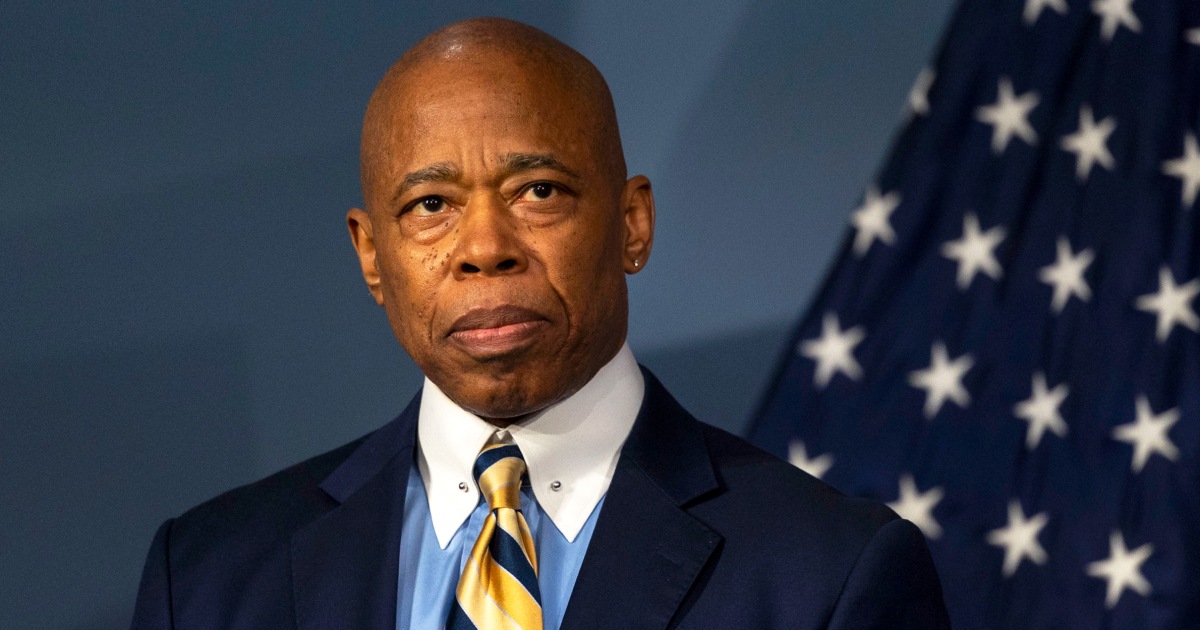
 News1 week ago
News1 week agoNYC Mayor Eric Adams' corruption case is dismissed
-

 Technology1 week ago
Technology1 week agoHere’s how you can preorder the Nintendo Switch 2 (or try to)
-

 News1 week ago
News1 week agoTrump to Pick Ohio Solicitor General, T. Elliot Gaiser, for Justice Dept. Legal Post
-
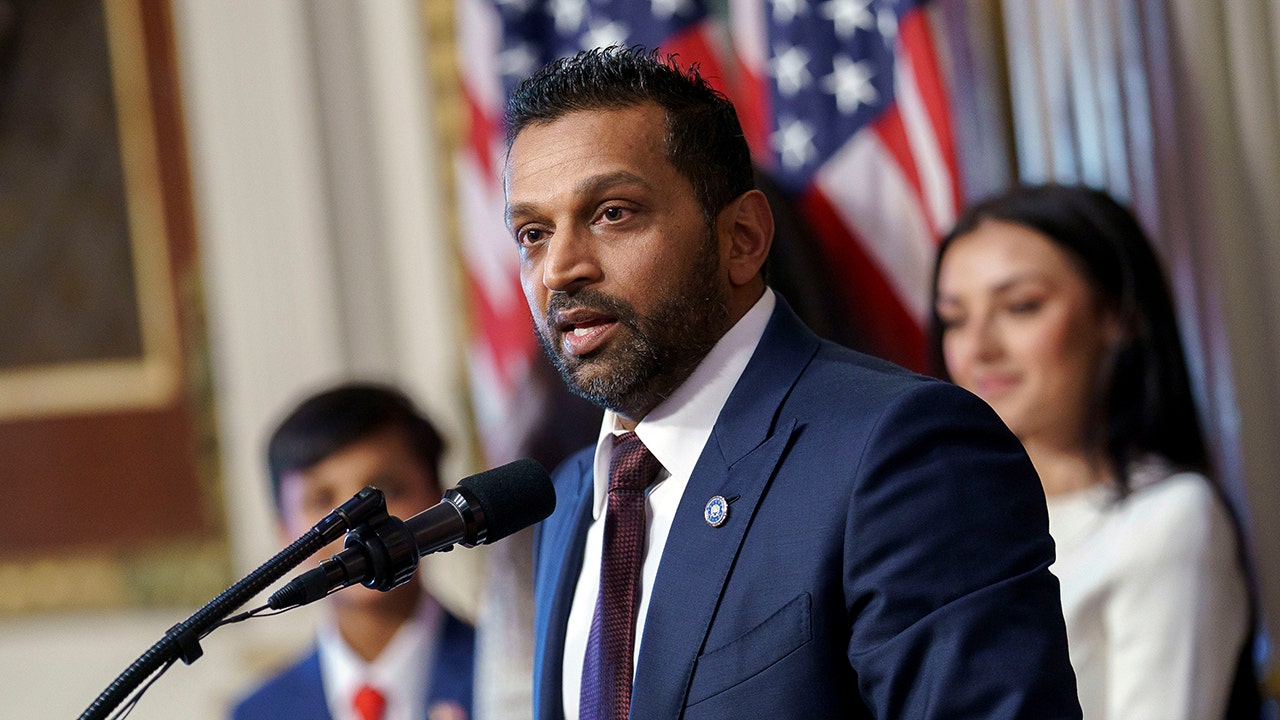
 Politics1 week ago
Politics1 week agoFBI flooded with record number of new agent applications in Kash Patel's first month leading bureau
-

 World1 week ago
World1 week ago‘A historic moment’: Donald Trump unveils sweeping ‘reciprocal’ tariffs
-

 Sports1 week ago
Sports1 week agoDeion Sanders defied doubters and returns to Colorado with a $10M per year deal. What’s next?
-
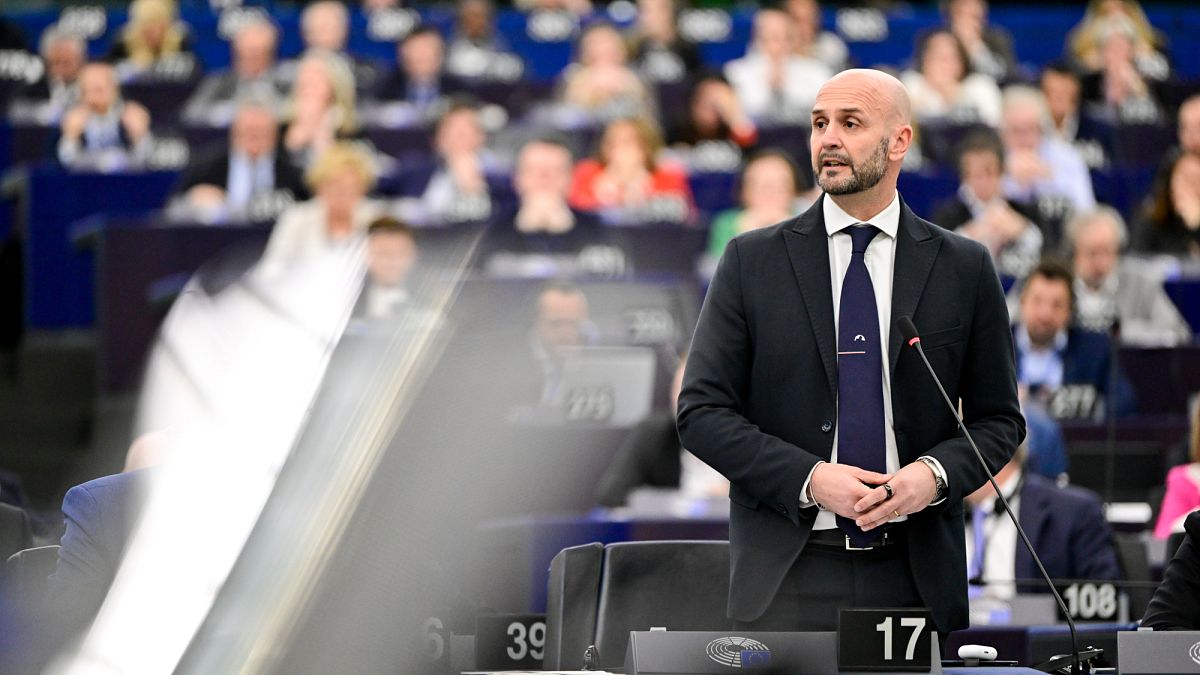
 World1 week ago
World1 week agoCommission denies singling out NGOs in green funding row


